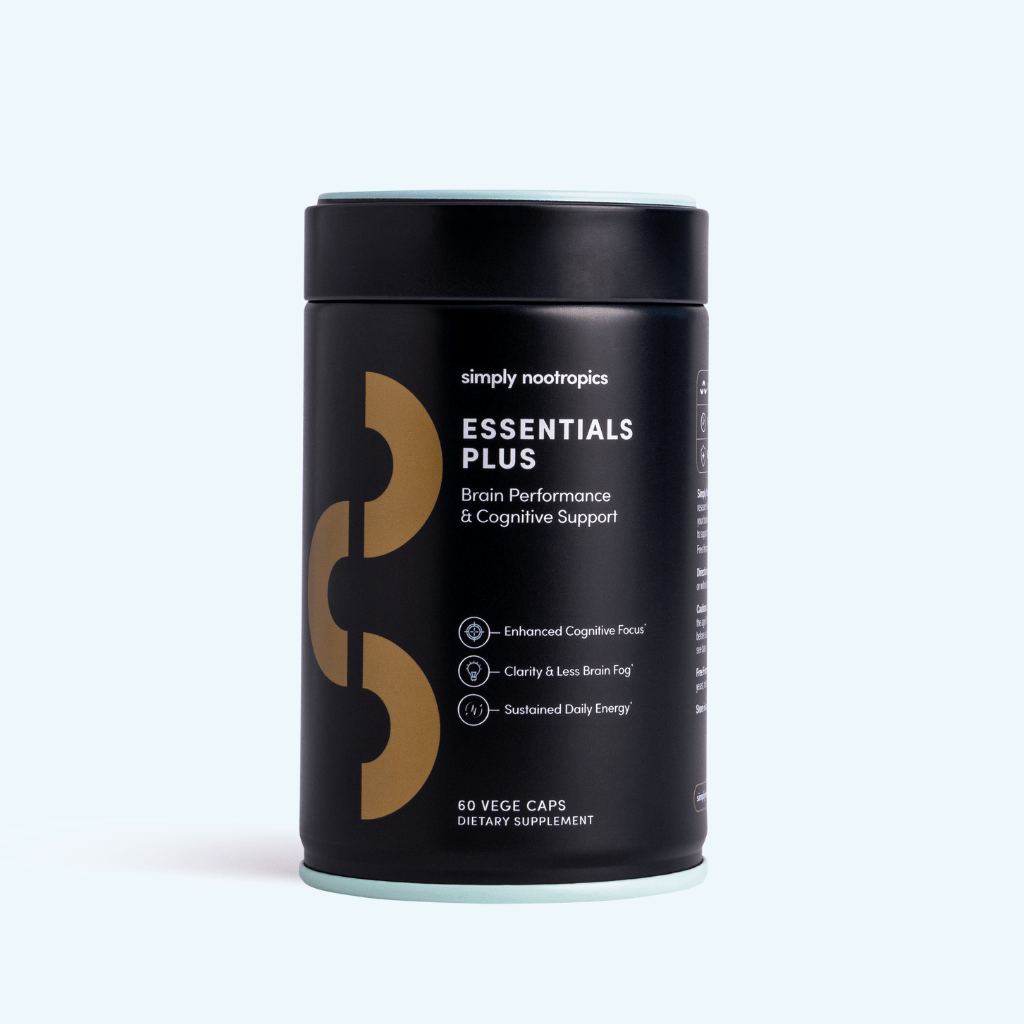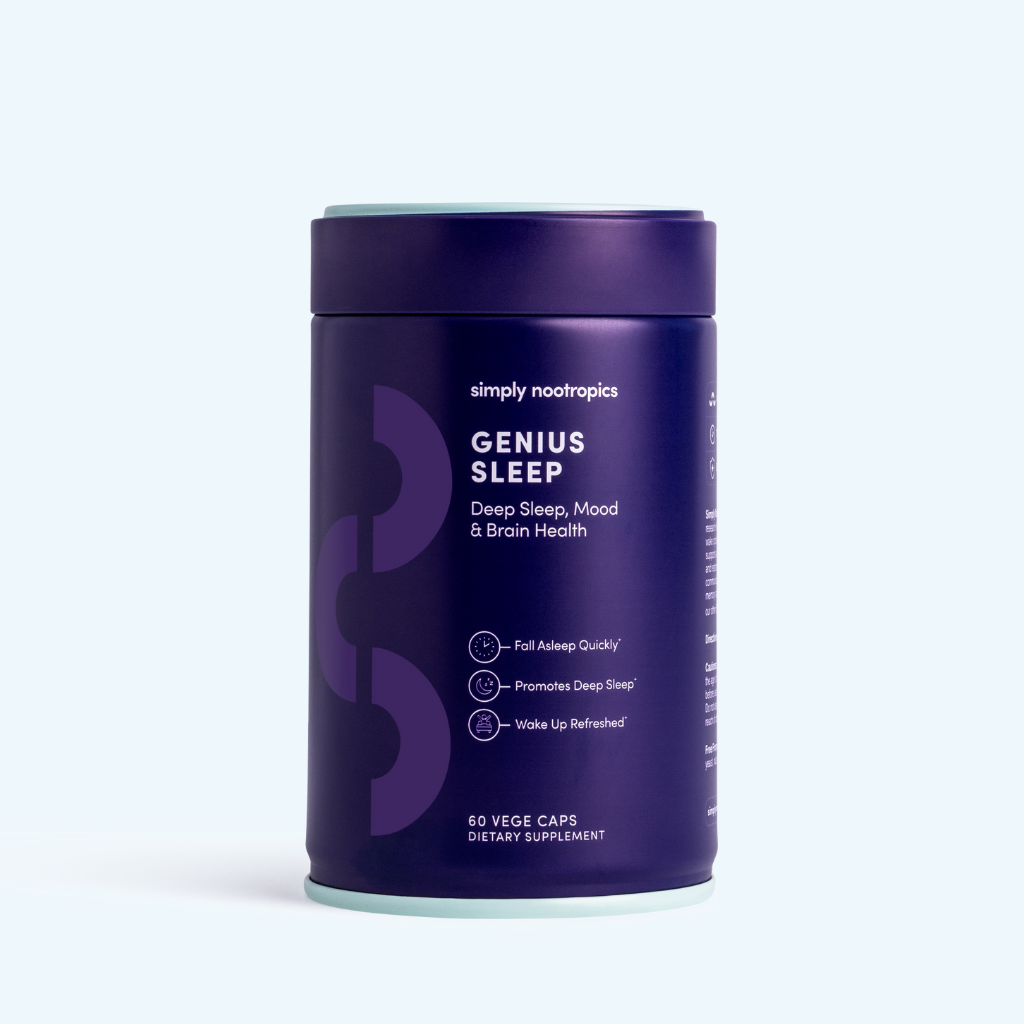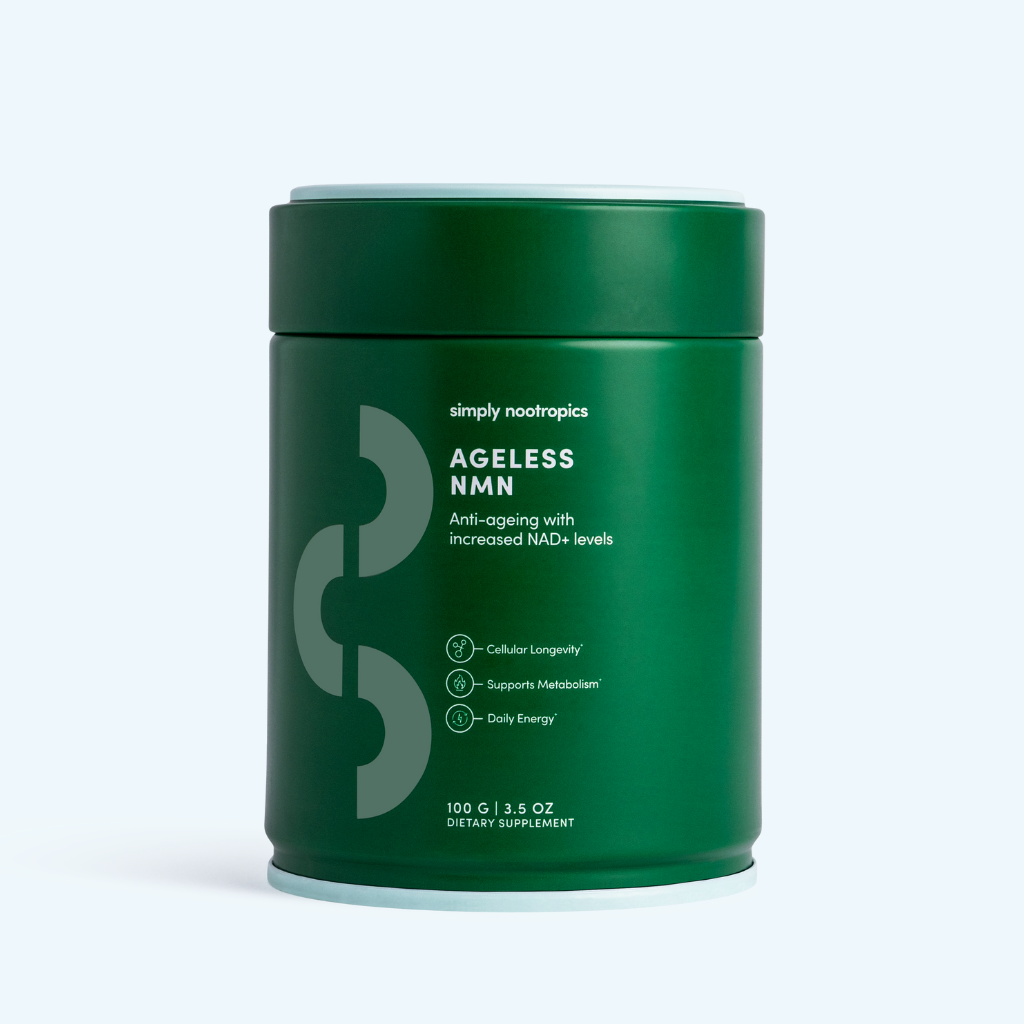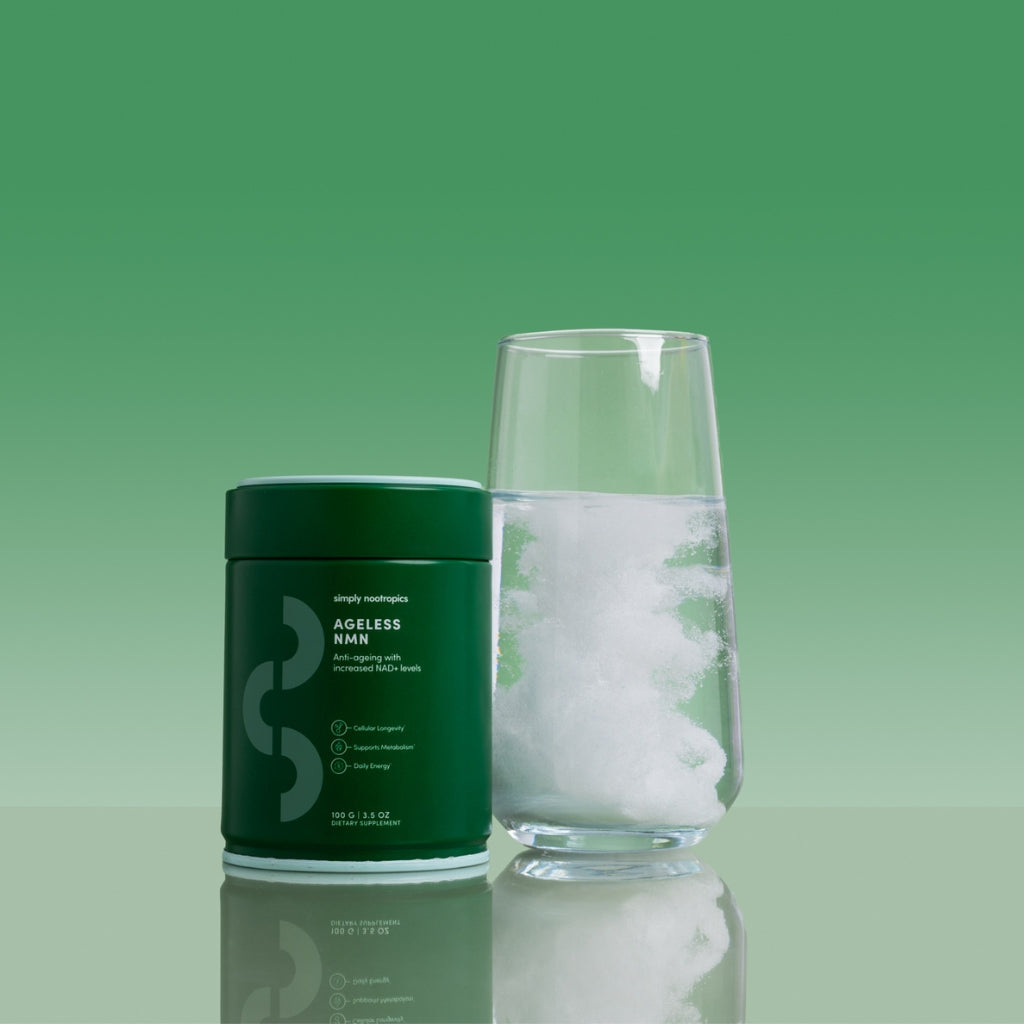We’ve all had days when exhaustion creeps in and it’s hard to tell whether our body, our brain, or both, are the problem. Fatigue isn’t a one-size-fits-all experience. Sometimes you’re physically tired but mentally sharp, other times you feel like your brain has turned to fog even though your body could keep going.
Understanding the difference between mental fatigue and physical fatigue isn’t just about labelling how you feel, it’s about knowing how to respond. Each type of tiredness has its own causes, consequences, and strategies for recovery, like smart supplementation.
What is Mental Fatigue?
Mental fatigue is that sense of brain-drain that leaves you unfocused, irritable, and struggling to make decisions. It’s not about muscles or stamina; it’s about the brain’s processing power being overstretched.
-
Cognitive overload: Hours of multitasking, decision-making, or staring at screens, creating a tired mind.
-
Stress hormones: Chronic stress elevates cortisol, which interferes with memory and focus.
-
Sleep disruption: Poor sleep affects neurotransmitters like dopamine and serotonin, making the brain slower to respond.
Symptoms often include:
-
Brain fog
-
Shortened attention span
-
Forgetfulness
-
Irritability or mood swings
Think of it as your brain waving a white flag after being asked to run marathons in the background all day.
A key sign of mental fatigue is that your body may still feel fine, you could technically go for a run or do chores, but your brain resists. Concentration becomes harder, tasks feel overwhelming, and even simple decisions take longer than usual.
What is Physical Fatigue?
Physical fatigue is what most people associate with being “tired”: aching muscles, low stamina, and an inability to keep moving at the same pace. Feeling always physically exhausted stems from the body’s energy systems being depleted or strained.
-
Muscle energy drain: After exercise or physical labour, glycogen stores run low and lactic acid builds up.
-
Poor recovery: Without proper nutrition, hydration, or rest, the body doesn’t repair as efficiently.
-
Underlying health issues: Anaemia, low thyroid, or nutrient deficiencies can amplify physical tiredness.
Symptoms include:
-
Heavy limbs
-
Reduced endurance
-
Muscle soreness
-
Desire to rest the body, even if the mind feels alert
Unlike mental fatigue, being always physically exhausted makes the body itself feel uncooperative. Walking upstairs may feel harder, your usual workout feels like a slog, and tasks requiring strength or stamina take twice the effort.
Why the Difference Matters
Mental and physical fatigue can overlap: stressful days can leave you too drained to hit the gym, and a hard workout can leave your brain foggy if you don’t fuel properly. But confusing one for the other can mean you choose the wrong recovery strategy.
-
Resting the body won’t always refresh a tired mind.
-
Taking a mental break won’t always restore muscle energy.
That’s why knowing which kind of fatigue you’re dealing with helps you take targeted action. It also prevents frustration, realising that a tired brain is not solved by a nap or that a coffee doesn’t change how you approach recovery.
Solutions for Mental Fatigue
-
Strategic Breaks
The brain works best in focused bursts. Techniques like the Pomodoro method (25 minutes on, 5 minutes off) keep mental energy sustainable. -
Mindfulness and Stress Reduction
Deep breathing, meditation, or even a quick walk outside can lower cortisol and reset focus for a tired mind. -
Sleep Quality, Not Just Quantity
Good sleep hygiene, like consistent bedtimes, limiting blue light, magnesium intake, helps restore neurotransmitter balance. -
Cognitive Nutrition
Compounds like Lion’s Mane mushroom, Bacopa, and Rhodiola have been shown to support mental clarity, reduce stress, and improve memory formation. -
Limit Decision Fatigue
Everyday choices add up. Streamline your routine: prepare meals in advance, wear a “uniform” of go-to outfits, or automate small tasks to save mental bandwidth.
Solutions for Physical Fatigue
-
Fuel and Hydration
Complex carbs, electrolytes, and protein help muscles recover and replenish glycogen stores if you feel always physically exhausted. -
Movement, Not Just Rest
Light activity like stretching or walking promotes circulation and clears waste products from muscles. -
Sleep and Recovery
Growth hormone released during deep sleep supports muscle repair and physical resilience. -
Nutrient Support
Adaptogens like Panax ginseng, antioxidants like pine bark extract, and amino acids all help restore physical stamina. -
Balance Activity and Rest
Overtraining is a real risk. Rest days are as important as workout days in long-term strength and performance.
Where They Overlap
Mental and physical fatigue share common ground in a few areas:
-
Inflammation: Both types of fatigue are worsened by high inflammatory load.
-
Nutrition: Micronutrient gaps (iron, B vitamins, magnesium) can manifest as either mental fog or physical weakness.
-
Stress: Chronic stress undermines both cognitive and physical energy.
That’s why an integrated approach, covering sleep, stress, nutrition, and movement, works best long term for a tired mind. For example, tackling stress doesn’t just improve focus; it also improves workout recovery. Likewise, eating nutrient-dense foods supports both brain function and muscular repair.
When to Seek Help
Fatigue is common, but persistent exhaustion that doesn’t improve with rest, diet, or lifestyle changes may signal something deeper. Conditions like anaemia, thyroid imbalance, sleep apnoea, or chronic fatigue syndrome can mimic everyday tiredness. If exhaustion feels constant or extreme, a medical check-up is essential.
Everyday Scenarios That Highlight the Difference
-
After a long meeting-filled day: Your body feels restless, but your brain refuses to concentrate: classic mental fatigue.
-
After a long hike: Your mind feels clear, but your muscles are sore and heavy: physical fatigue.
-
After a sleepless night: Both brain and body are dragging, showing how mental and physical fatigue often overlap.
Recognising these patterns helps you respond intelligently instead of defaulting to coffee or rest that might not address the root cause.
Supporting Both with Essentials Plus
Essentials Plus was formulated with the reality of modern fatigue in mind: most of us are dealing with both mental and physical tiredness, sometimes on the same day. That’s why its ingredients go beyond a single pathway and instead cover the major drivers of resilience:
-
For mental fatigue: Lion’s Mane mushroom supports neuroplasticity and memory, while Rhodiola Rosea helps buffer stress, balancing cortisol so your brain isn’t left in constant fight-or-flight mode.
-
For physical fatigue: Panax ginseng is known to improve endurance and reduce fatigue, while New Zealand pine bark extract (Enzogenol) provides antioxidants that protect cells from oxidative stress after exertion.
-
For daily balance: Ashwagandha works as an adaptogen for both brain and body, helping to restore calm while sustaining energy. Together, these compounds act not as stimulants but as stabilisers, supporting energy, mood, and cognition in a way that aligns with long-term health rather than quick fixes.
Taken consistently, Essentials Plus builds a foundation that makes it easier to recover from both kinds of fatigue. It doesn’t replace good sleep, proper nutrition, or stress management, but it strengthens the systems that make those efforts work better.
















